Explore the ‘Land Down Under’ like never before.
From watching adorable quokkas nibble on leaves to spotting majestic kangaroos happily hopping around, wildlife experiences in South Australia and Western Australia are among the world’s best.
Providing a home to natural wonders and native animals such as the koala, echidna and saltwater crocodile, the two diverse states are a wildlife lovers’ paradise. So, whether you’re on a relaxing honeymoon escape or exciting family adventure, there’s an array of experiences to make your luxury holiday unforgettable.
Discover the ten best wildlife experiences in South Australia and Western Australia.
1. Go Whale Watching in Albany, Margaret River & Port Lincoln
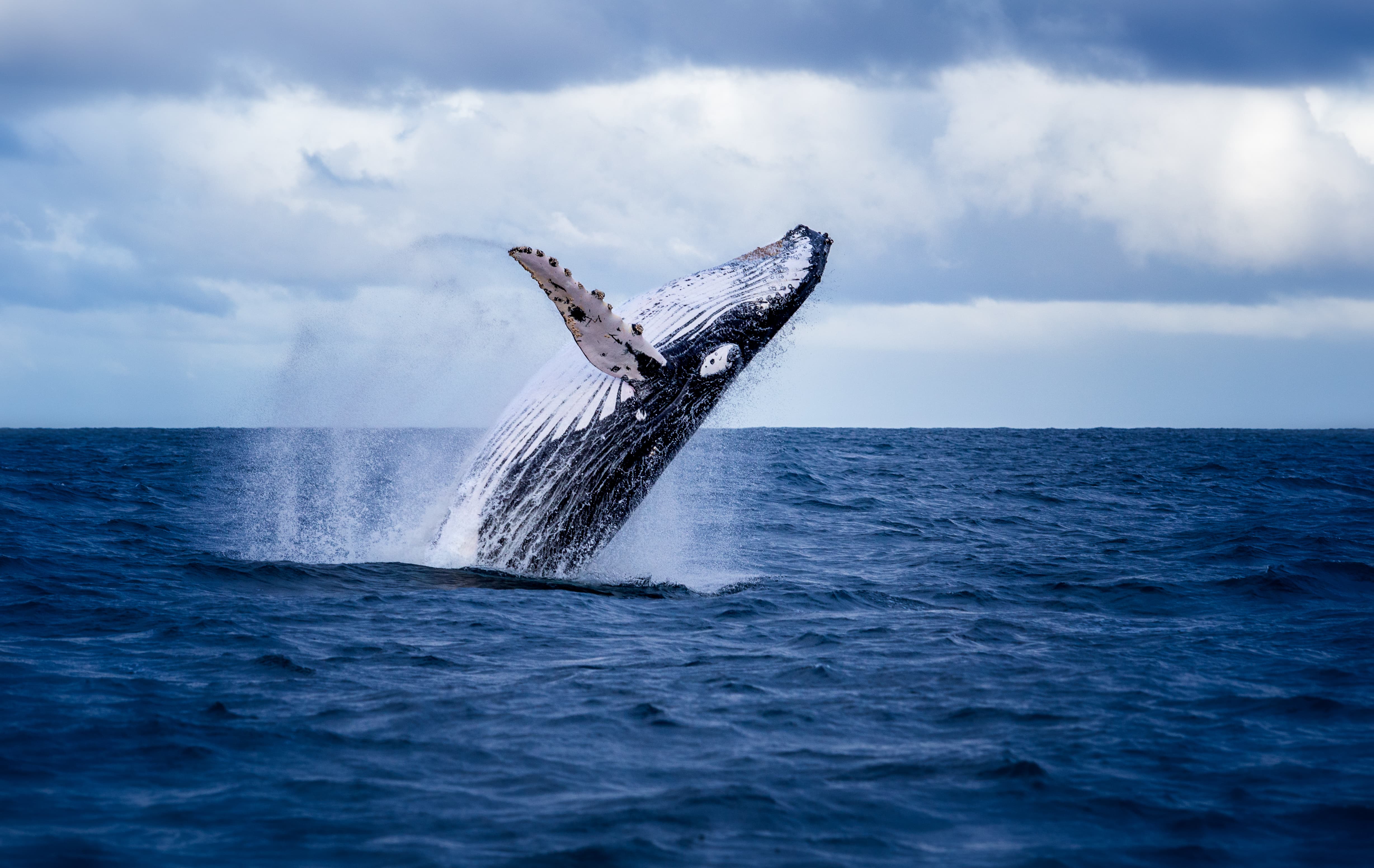
Located in the South West region of Western Australia, Albany is a picturesque port city where the coast plays host to breathtaking whale-watching experiences. Around late May to early October, the majestic humpback and southern right whale species migrate to the turquoise waters. Humpbacks pass through King George Sound on their way to the tropical Kimberley nursing grounds while the southern right pod stops to calve.
After observing these magnificent creatures and learning about their intriguing habits, the boutique rooms of The Beach House at Bayside await your arrival. Relax in the comfort of your elegant surroundings, listen to the calming sounds of the ocean while drifting off to sleep and awake to a sumptuous breakfast.
Further west, the expansive Margaret River Wine Region also sees humpback and southern right whales in the same period. In addition, you may spot the world’s largest mammal – the blue whale. While embarking on a thrilling Augusta Whale Watching Cruise, there’s a chance these gentle giants emerge from the deep depths. Classified as endangered, there are only an estimated 10,000 to 25,000 left in the world today.
Once you’re done searching, why not treat yourself to award-winning wines from Cape Lodge’s vineyard? Gaze out onto a sprawling 40-acre parkland and embrace the peaceful, intimate property’s personal service. Alternatively, Smiths Beach Resort offers luxurious, spacious apartments and beach houses with gorgeous coastal views.
Situated on South Australia’s Eyre Peninsula, the region surrounding Port Lincoln makes for yet another excellent whale-watching excursion. At the end of Sleaford Bay Road, there’s a lookout point just outside Lincoln National Park where you may just be lucky to see southern right, humpback and blue whales. While in the area, you can take part in a number of aquatic experiences such as shucking oysters direct from the oyster bed or swimming with playful sealions, dolphins and giant cuttlefish. Alternatively, more adventurous travellers can go great white shark cage-diving.
“The two states also combine for the ultimate South Australia and Western Australia Wildlife Safari. Margaret River’s vineyards can be explored on a scenic flight or wine tour and the Galapagos of Australia, Kangaroo Island, is a sanctuary for an abundance of native wildlife.” – David Pointer, Product Manager
2. See Quokkas on Rottnest Island
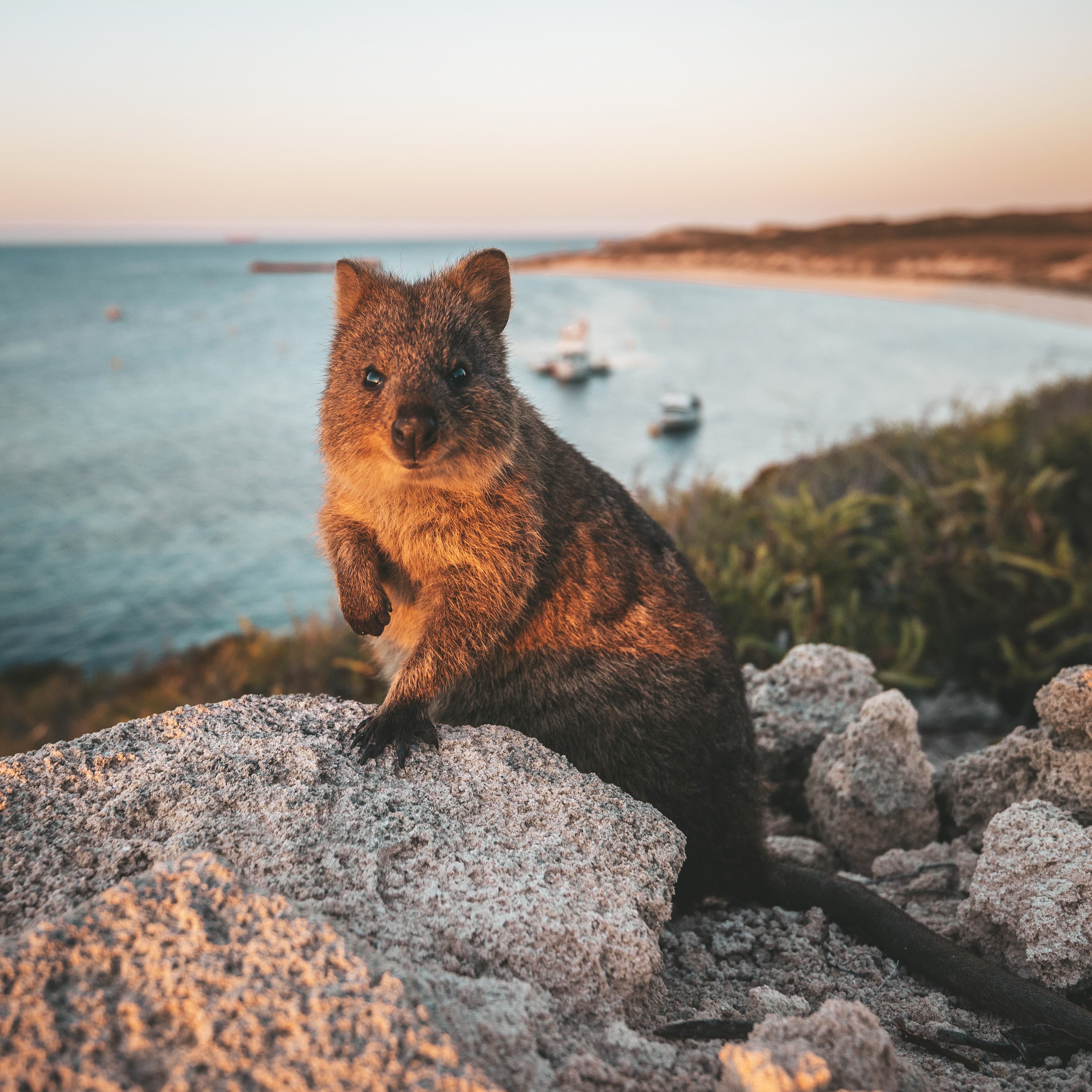
Opposite the shores of Cottesloe Beach in Perth is the enchanting nature reserve, Rottnest Island. The island is populated with an abundance of Western Australian animals, including bobtail lizards, silver gulls and the adorable quokkas, considered ‘the world’s happiest animal’. These pint-sized marsupials, who are related to both kangaroos and wallabies, are a vulnerable species, and a third of their entire population lives on Rottnest Island. So, simply observe how they forage for food and interact with one another.
Following your spectacular day trip to the island, return to the city and stay in a beautifully restored 19th-century state building at COMO The Treasury. The healthy Shambhala cuisine, holistic body treatments and luxurious rooms on top of the lovely Perth weather complete an extraordinary wildlife experience.
3. Enjoy Birdwatching in the Kimberley & El Questro
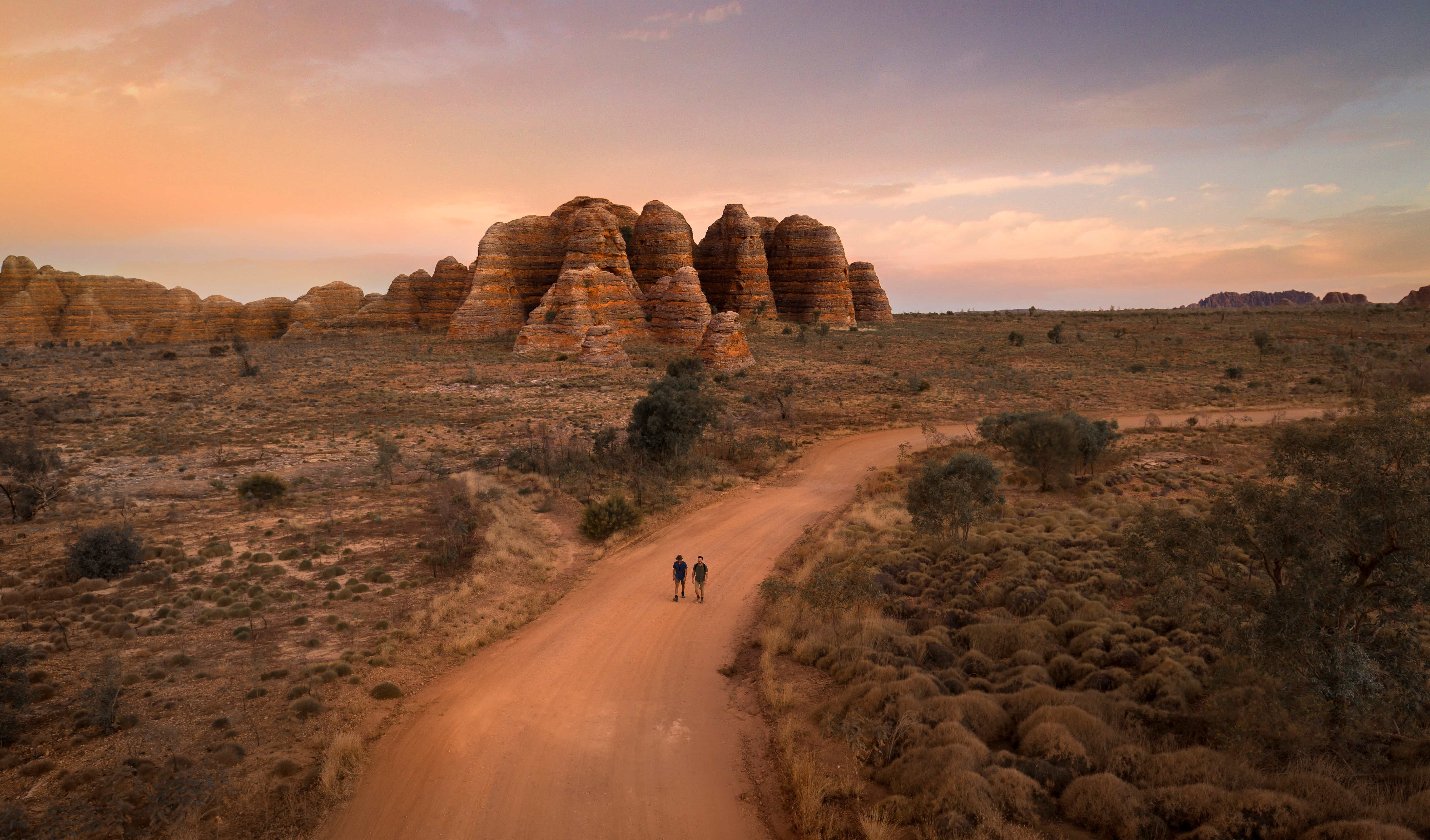
Comprising 420,000 square kilometres of rugged ranges and pristine coastlines, the remote Kimberley region is perfect for birdlife to thrive. Almost one-third of Australia’s 900 species of birds can be found in this area alone. From the striking purple-crowned fairywren in the King Leopold Ranges Conservation Park to the majestic black kite, you’ll discover an array of weird and wonderful wildlife in Western Australia.
In the east, the far-flung El Questro Homestead runs a phenomenal bird-watching tour. Starting in the early morning, your search for the elegant brolga and black-necked jabiru will present incredible discoveries. In Broome, the local bird observatory is also home to some incredible bird species, from yellow chat to oriental pratincole. Afterwards, relax at the Cable Beach Club Resort & Spa, set across 23 acres of lush gardens where wallabies roam free. Alternatively, enjoy an awe-inspiring outback birdwatching excursion at the romantic Berkeley River Lodge.
“Broome is also the last leg on our spectacular Discover Western Australia’s Coastal Drive tour. Along the wild coastline, you’ll come across migratory shorebirds at Port Headland and explore the rugged terrain and breathtaking gorges of Kalbarri National Park.” – Ellie Dovey, Travel Specialist
4. Discover River Life on Murray River
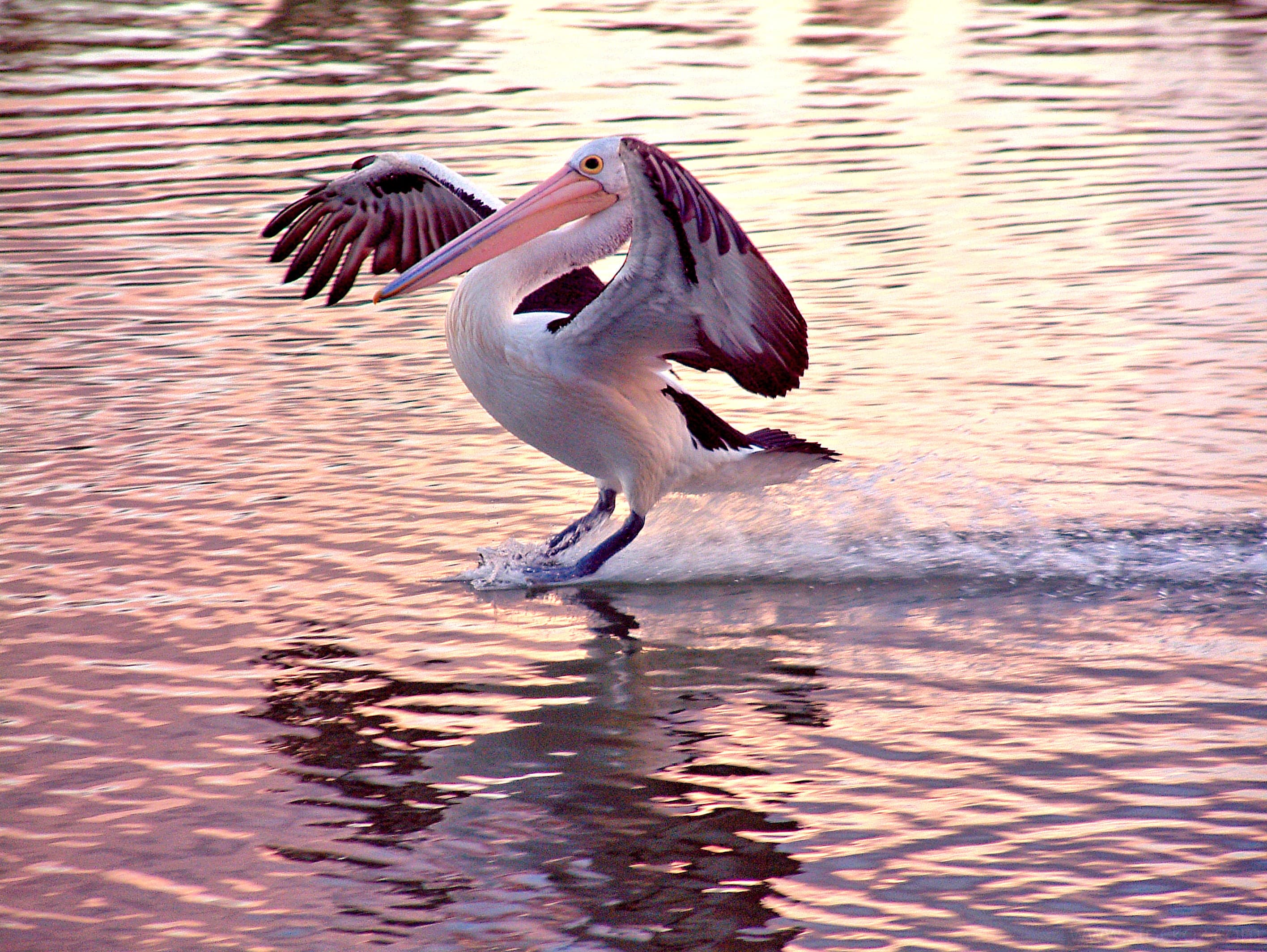
Snaking its way from the Australian Alps in Victoria to the ocean at Lake Alexandrina in South Australia, the Murray River is the longest inland waterway in the whole country. While on the Riverland, you’ll discover diverse wild animals from echidna foraging for ants to pelicans leisurely wandering around. But perhaps the most exceptional encounters are the red kangaroos and mighty wedge-tailed eagles.
During any luxurious stay at The Frames, you can observe these Riverland residents on an exclusive Wetlands & Wildlife Safari. Meander through the creeks and backwaters in your customised, comfortable dinghy and be on the lookout for emus while sipping on an assortment of refreshing local beverages – utter bliss.
5. Explore the Flinders Ranges in Search of Endangered Wildlife & Birdlife
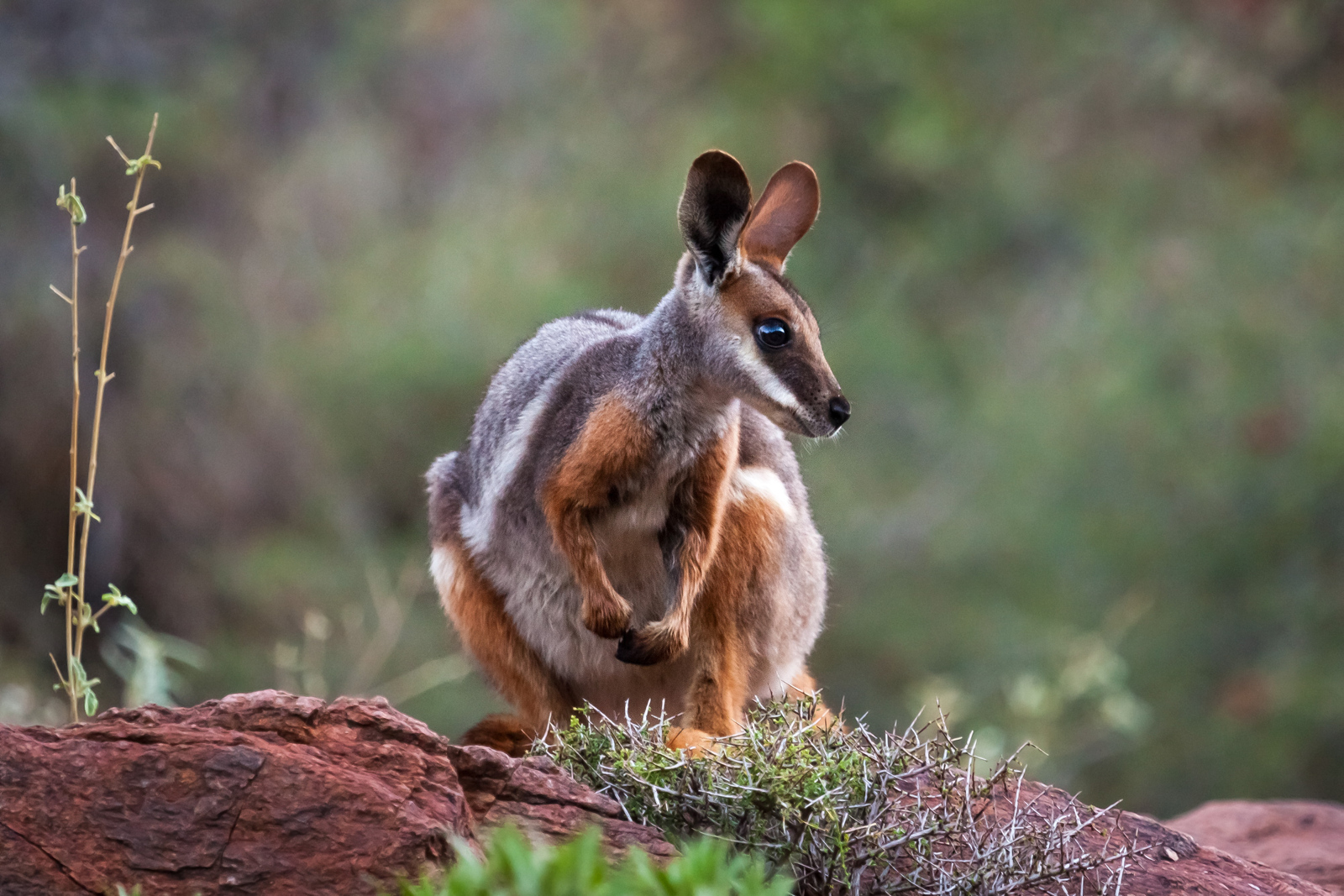
Over in the Ikara-Flinders Ranges National Park, common brushtail possum, red kangaroos and emus make the rocky creek lines their natural habitat. The endangered yellow-footed rock-wallaby race among the steep cliffs and grey-fronted honeyeaters glide graciously through the skies. However, some of the more intriguing animals in South Australia are the reptiles. Search for Lake Eyre dragons scuttling through hot sands and shingleback lizards along the park trails.
With a magnificent view of the natural amphitheatre of Wilpena Pound, Arkaba Conservancy is the perfect homestead for unwinding after your exploration of the breathtaking Flinders Ranges. Traverse the 60,000-acre private wilderness via open-air jeep and spot natives from kangaroos and bearded dragons to masked rock skinks and thick-tailed geckos.
Alternatively, visit Rawnsley Park Station for a wonderful stay in one of the luxury Eco Villas or traditional Australian Homestead, built in 1950. Not only will you savour modern Australian cuisine at the exceptional Woolshed restaurant, but you can also enjoy a unique overnight heli-camping experience. Soar past Rawnsley Bluff and over Wilpena Pound before landing on the Chace Range, home to spectacular sunset views.
6. Swim with Whale Sharks at Ningaloo Reef
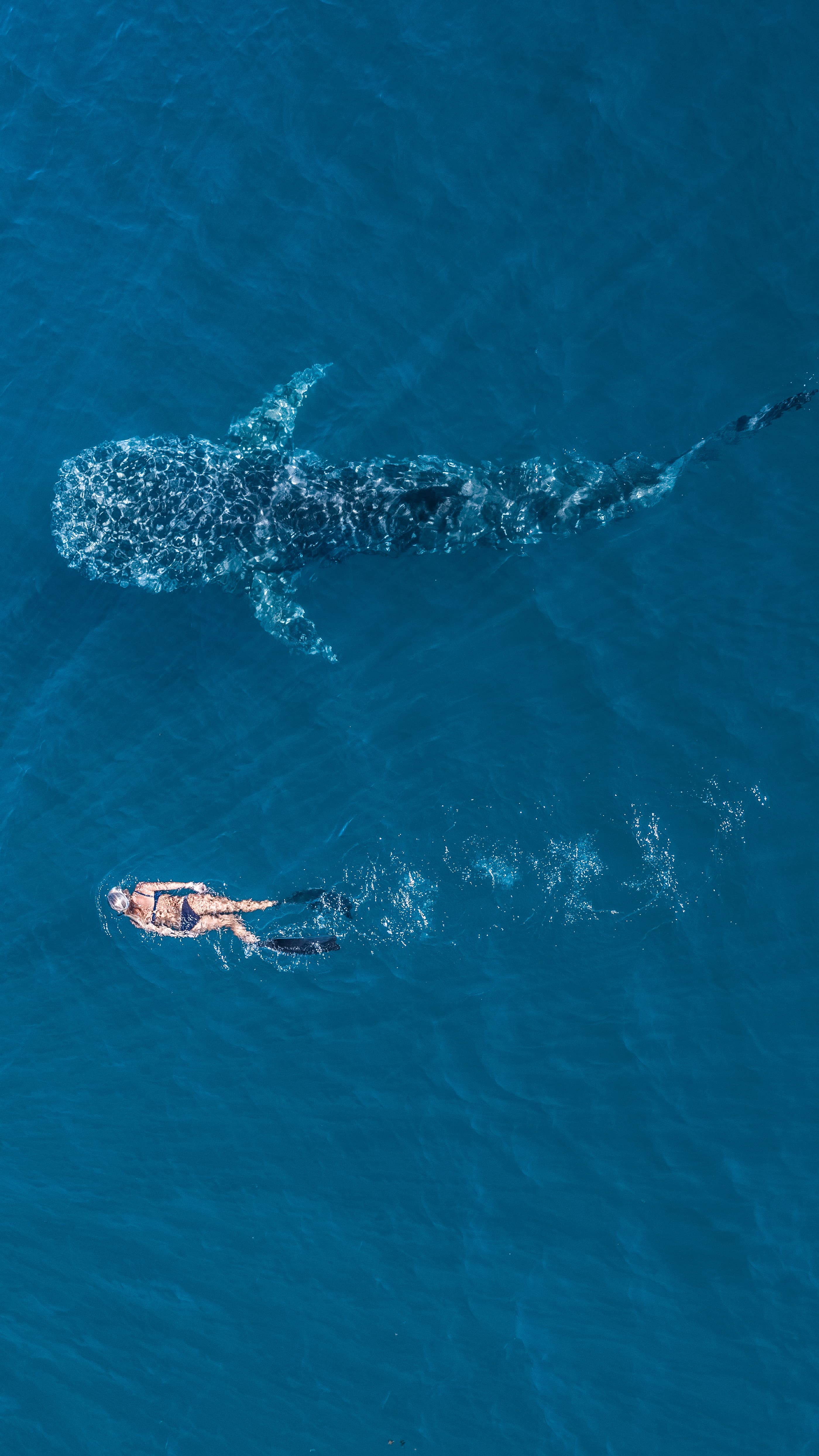
Stretching over 300km along Western Australia’s picturesque coastline, UNESCO-listed Ningaloo Reef is an enchanting ecosystem where whale sharks congregate every year. Operating from March to August, the Full Day Deluxe Whaleshark Swim experience plunges you in among colourful coral to snorkel with these gentle giants and spot manta rays. Alternatively, the Full Day Deluxe Humpback Whale Swim between July and October allows you to explore the clear blue waters filled with their ethereal song and see resident dugongs and turtles.
Back on land, the alluring ‘eco-luxury’ tents of Sal Salis provide a fabulous view of the Indian Ocean. Kayak over the crystal-clear Ningaloo Reef in tandem with your partner or embark on a wildlife safari adventure-of-a-lifetime at Cape Range National Park, uncovering its hidden gems.
7. Locate Iconic Australian Animals at Cape Range National Park
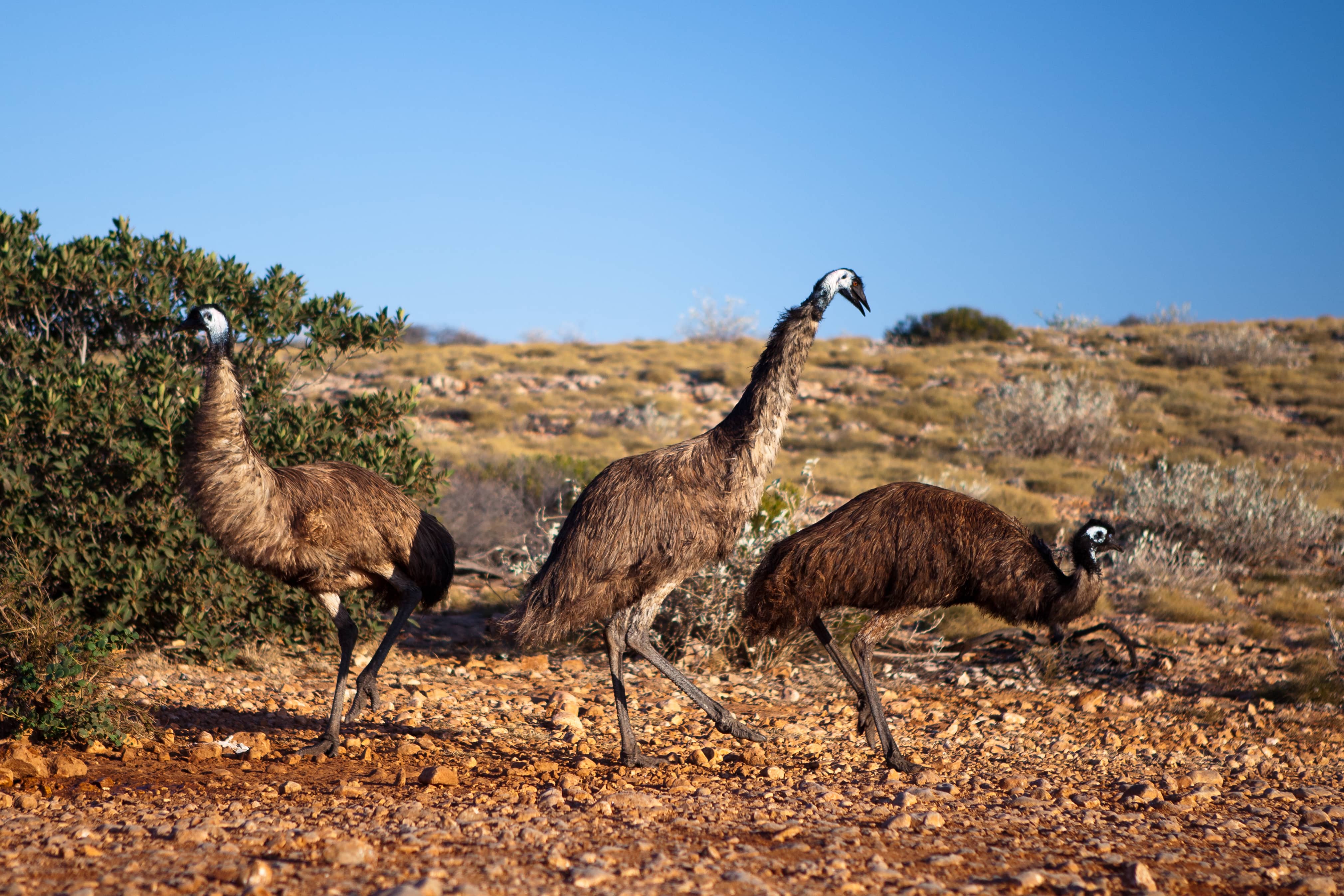
In Exmouth, it’s not just the world’s longest fringing reef which is filled with wonderful wildlife, the coastal Cape Range National Park offers outback scenery and animals too. The Full Day Top of The Range Safari provides expert eyes and insight to help you spot emus, echidnas and rare black-footed wallabies among the limestone ranges and deep canyons.
There are various species of bird too, including the banded lapwing, spinifex pigeon and zebra finch. Similarly, the Mantarays Ningaloo Beach Resort in Exmouth sees an array of birdlife. During your visit, you may even spot nesting turtles in the seasonal months between November and March.
8. Encounter Kangaroos & Rare Sealions on Kangaroo Island
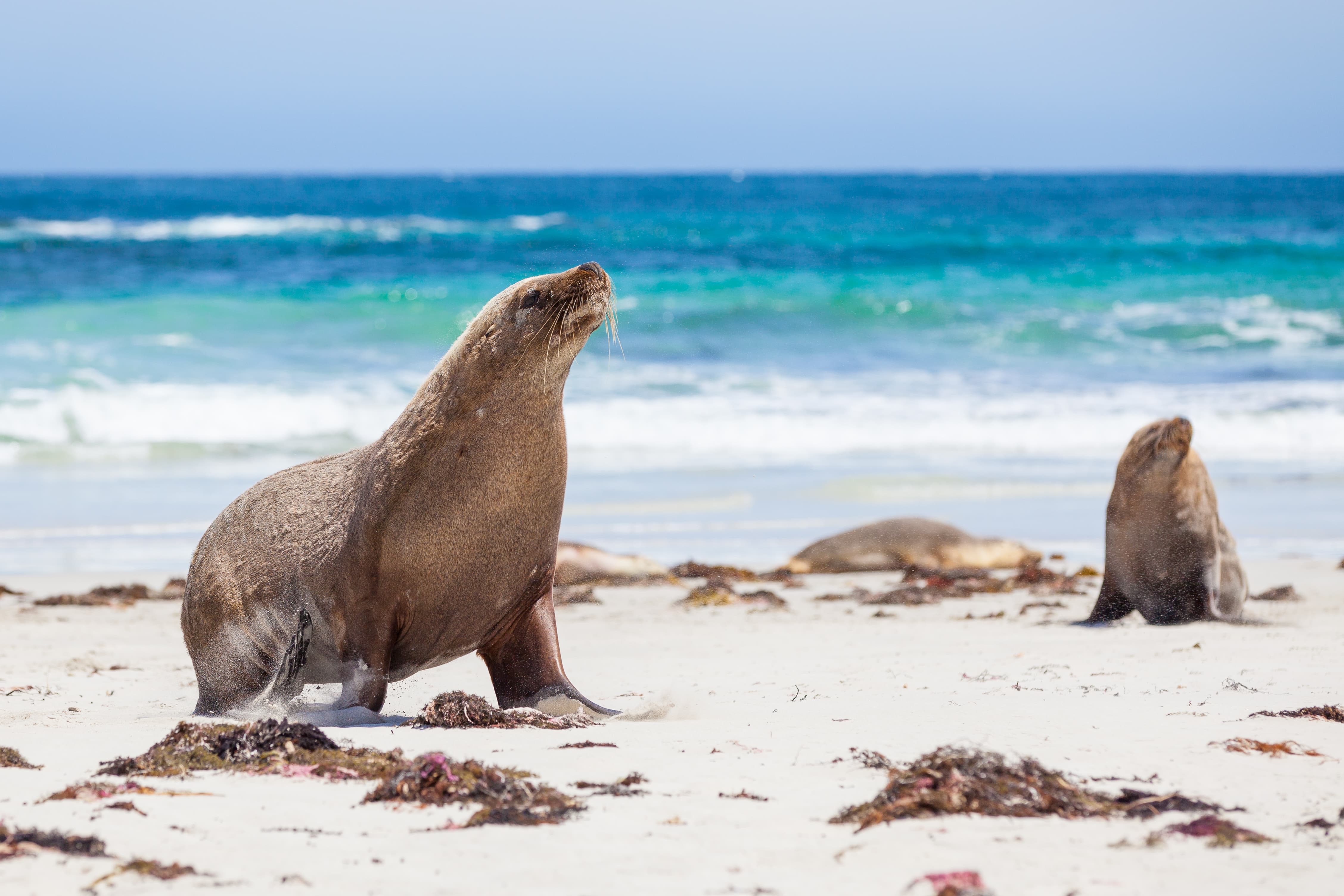
Accessible via ferry from Cape Jervis or a short 30-minute flight from Adelaide to Kingscote, the premier wildlife destination of Kangaroo Island is an unmissable holiday experience – seen by many as the jewel in Australia’s crown. Not only will you encounter the titular western grey kangaroo, but the area is also home to over 260 species of birdlife, the shy echidna and koalas as well as rare Australian sea lions at Seal Bay. Kangaroo Island is a top visitor attraction in South Australia, for good reason. With unspoiled wilderness along the coastal heathlands of Flinders Chase National Park and white sands of Seal Bay Conservation Park, it’s well worth your visit.
Looking for somewhere to stay? Then escape to Southern Ocean Lodge – a remote, luxurious retreat offering bespoke experiences like the ‘Wonders of KI’ tour at Flinders Chase National Park. Or opt for a scenic walk around the idyllic Sea Dragon Lodge, where over 30 species of birds live among wallabies, koalas and echidnas. Across 250 acres of secluded beaches and coastlines, your time here will be nothing but special.
“Along with Kangaroo Island, our Discover South Australia’s Wine, Wildlife & Outback tour explores the remote Eyre Peninsula, Coffin Bay and Lincoln National Park. Sample some of Australia’s premier wines and spot an abundance of ocean creatures.” – Greig Wells, Travel Specialist
9. Visit the Adelaide Hills to Spot Koalas
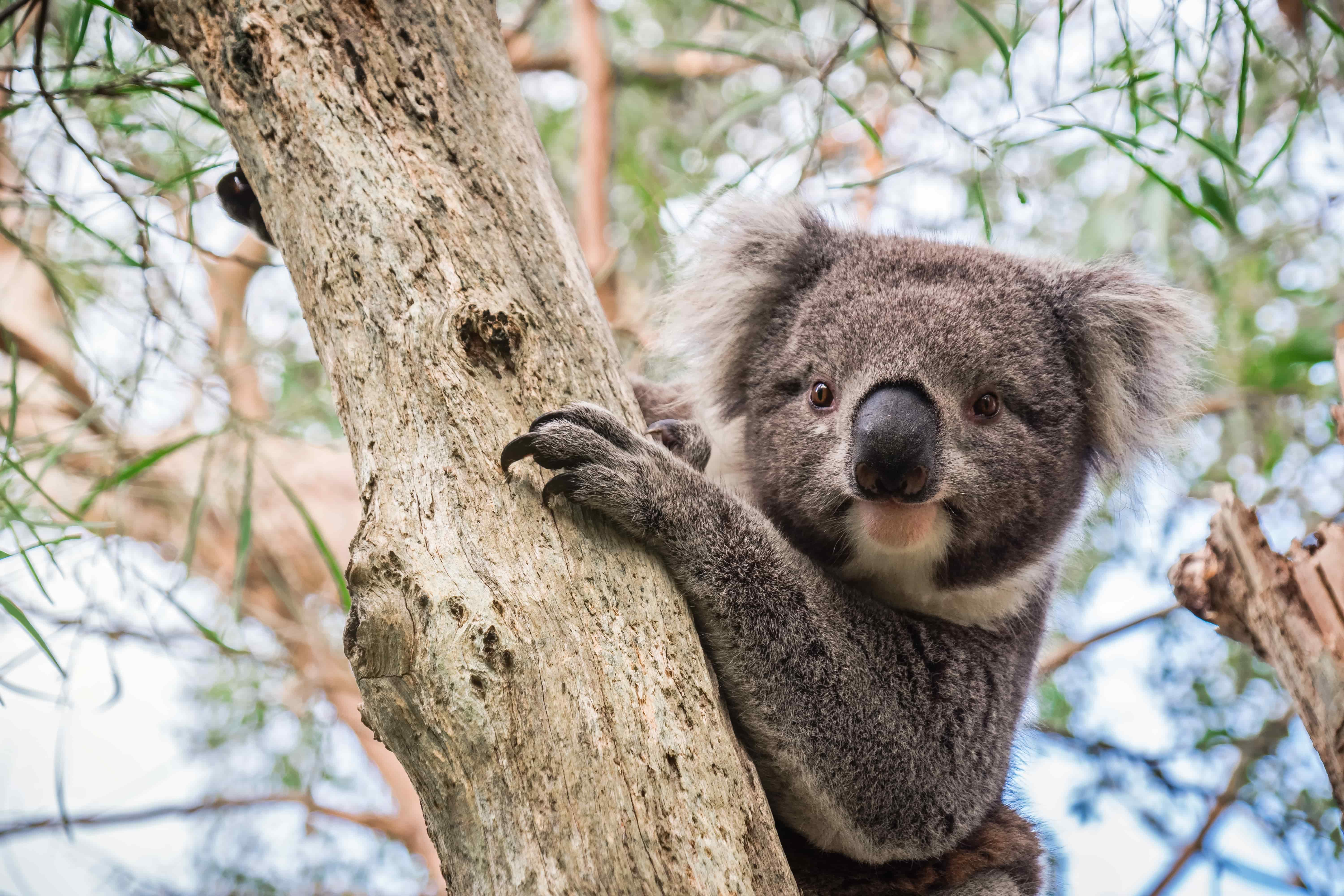
Australian animals come in all different shapes and sizes, from the platypus to wombats and the humpback whale. The most popular, though, is the koala. Found just outside the city of Adelaide in the Adelaide Hills – and in abundance on Kangaroo Island and the Eyre Peninsula – these lazy creatures inhabit the trees and feed on eucalyptus leaves. As one of the best places to see koalas in Australia, Cleland Conservation Park provides a safe and habitable environment for the creatures to thrive.
During your visit, the adult-only, luxury Sequoia Lodge provides an immersive tour of the Mount Lofty House Cellar. Sample some of the region’s fine selection of aromatic wines before exploring Piccadilly Valley. Slightly further afield in Australia’s premium wine region of Barossa, the captivating vineyards surrounding The Louise are simply breathtaking while it’s early morning hot air balloon ride is the pièce de résistance.
10. Observe Wildlife on three Great Walks of Australia
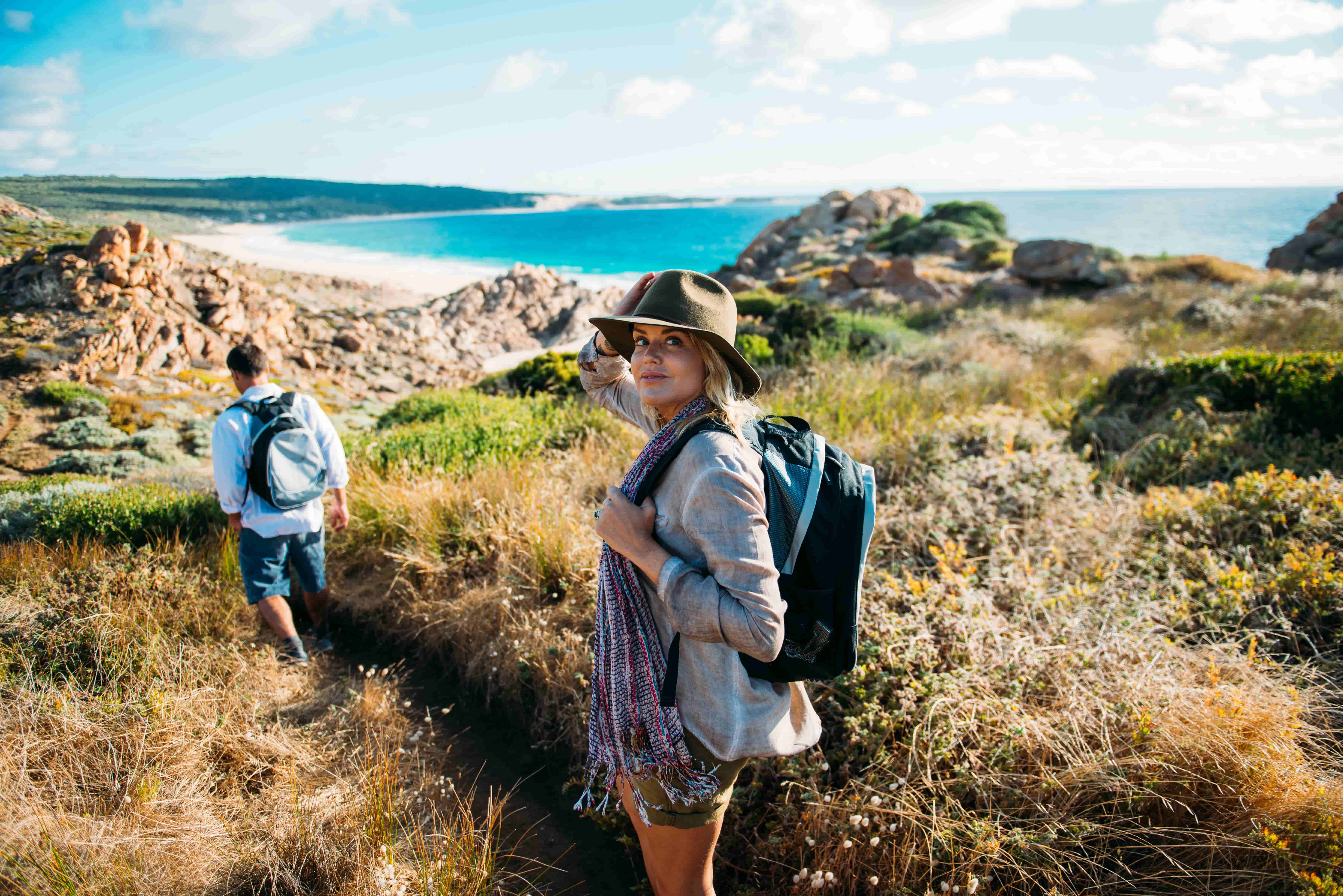
Across both states, you can partake in three unforgettable walking experiences.
Following the Leeuwin-Naturaliste Ridge, between both Cape Naturaliste and Cape Leeuwin lighthouses, the Cape to Cape Walk in Western Australia features spectacular highlights from start to finish. Operational from March to June and September to November, the four-day and three-night journey touches upon fascinating cliffside geology, gorgeous rock pools and expansive limestone caves. Spot southern brown bandicoots, ring-tailed possums and western grey kangaroos all throughout the track.
Over in South Australia, the Arkaba Walk covers the ancient Ikara-Flinders Ranges and private Arkaba Nature Conservancy. See red kangaroos, wallaroos and emus along the craggy sandstone bluffs, dry creek beds and stunning landscapes populating the trail. In March to October, during the four days and four nights it’ll take you to complete the adventure, you’ll learn of incredible tales told by your expert guide. The conservation efforts in place to protect these diverse environments are also hugely inspiring.
Last but not least, the Murray River Walk combines peaceful cruising with easy hiking to bring you up close with the marvellous wetlands of Australia’s greatest waterway. Between May and September, you can embark on this four-day and three-night trek to witness four nationally threatened species – the regent parrot, southern bell frog, Murray Cod and Murray hardyhead. Additionally, you’re served a sumptuous three-course dinner every evening that uses local ingredients paired with a delicious fine wine.
“For the ultimate hiking and wildlife adventure, our Take a Walk on the Wild Side tour combines three Great Walks. Spot native kangaroos, wild echidnas and discover a host of incredible wildlife experiences across Murray River, Arkaba and Margaret River.” – David Pointer, Product Manager
Escape to South Australia and Western Australia
The wildlife experiences of South Australia and Western Australia are exceptionally unique to one another, providing the ultimate outback and safari holidays. So, if you’re excited to explore the very best of these two expansive regions, we’ll tailor-make your entire break.
FAQ’s
Where can I find native Australian animals in Western Australia?
Native species and animals that make Western Australia their home include quokkas on Rottnest Island and kangaroos at Lucky Bay. Emus live on Cape Range National Park, sea lions inhabit the waters of Cervantes and echidnas roam the Bibbulmun Track.
What accommodation options are available near these wildlife destinations?
After a day trip to Rottnest Island, return to Perth and discover its many luxury hotels from Crown Towers to The Ritz-Carlton and Pan Pacific. One and a half hours south of Broome, the Eco Beach Resort provides a variety of nature-based activities like birdwatching and bush walks. Alternatively, the luxury Sal Salis provides the perfect combination of off-grid beach escape and wilderness safari during your visit to the UNESCO-listed Ningaloo Reef.
In South Australia, the premium Mayfair Hotel and contemporary Majestic Roof Garden are two exceptional hotels ideal for a night’s rest. During a visit to Kangaroo Island, the secluded Southern Ocean Lodge welcomes you to discover its untamed natural beauty and warm hospitality while Sea Dragon Lodge offers glorious coastline views and wildlife sightings. Whereas in the Flinders Ranges, Rawnsley Park Station immerses you in typical Australian Outback scenery and outdoor activities, from hiking to mountain biking.
Are there precautions or guidelines for interacting with wildlife?
Wildlife in South Australia and Western Australia should be observed from a respectful distance. Listen to your guide’s instructions, and of course, touching or feeding wild animals is prohibited.
What animals can I see near Perth?
Perth wildlife encounters include swimming with sea lions and dolphins at Rockingham, 40 minutes south of the city – although you may spot dolphins along with black swans in the Swan River too. The quokkas on Rottnest Island are a must, but consider a boat tour to see seals here.
Where can I see koalas in Australia?
The best places to see koalas in Australia are Kangaroo Island, Eyre Peninsula, Yanchep National Park and Adelaide Hills. In the Adelaide Hills, Cleland Conservation Park is home to the marvellous marsupials – where you can spot them in the trees feeding on eucalyptus leaves.
What animals live in South Australia?
Animals that live in South Australia include the wombat in the Murray-Darling Basin, echidnas and rare sea lions on Kangaroo Island and emus in Coffin Bay National Park. Other sightings are the quoll, koala, wallaby, fur seal, kangaroo, reptiles, marine animals and various birdlife, including the soaring wedge-tailed eagle and endangered glossy black cockatoo.
Where can I see wildlife near Adelaide?
Just 20 minutes from Australia’s vineyard capital, the Adelaide Hills offers incredible wildlife experiences, from spotting marsupials such as kangaroos, bettongs and potoroos to koalas and even the elusive echidna. Coorong National Park harbours brilliant birdlife, including the red-necked stint and yellow-tailed black cockatoo. At the seaside suburb of Glenelg, you can even watch or swim with pods of wild dolphins in their natural habitat and learn about the curious species from expert marine biologists in a strictly controlled environment.
What are the most unique wildlife found nowhere else on Earth?
The most unique animals in Australia are kangaroos, wombats, koalas, emus and platypus.


